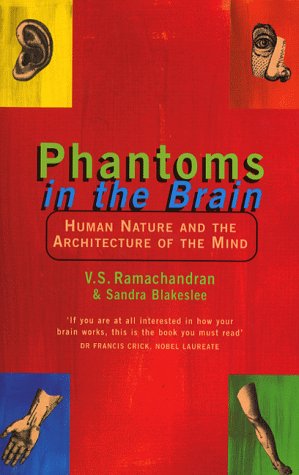‘Phantoms in the Brain’ details a revolutionary new approach to theories of the brain from one of the world’s leading experimental neurologists. As Oliver Sacks notes in his foreword: ‘[A] deeply serious but beautifully readable book, “Phantoms in the Brain” is one of the most original and accessible neurology books of our generation.’
‘Phantoms in the Brain’, using a series of case histories, introduces strange and unexplored mental worlds. Ramachandran, through his research into brain damage, has discovered that the brain is continually organising itself in response to change. A woman maintains that her left arm is not paralysed, a young man loses his right arm in a motorcycle accident, yet he continues to feel a phantom arm with vivid sensation of movement. In a series of experiments using nothing more than Q-tips and dribbles of warm water the young man helped Ramachandran discover how the brain is remapped after injury. Ramachandran believes that cases such as these illustrate fundamental principles of how the human brain operates. The brain ‘needs to create a “script” or a story to make sense of the world, a unified and internally consistent belief system’. Ramachandran’s radical new approach will have far-reaching effects. ‘Phantoms In the Brain’ combines gripping stories with cutting-edge science.
‘The patients he describes are fascinating and his experiments are both simple and ingenious. The style is lively and informative and enlivened by unusual touches of humour…this is a book you must read.’ Francis Crick, Nobel Laureate
Dr Vilayanur Ramachandran is professor of Neuroscience and Psychology at UC San Diego. He is a leader in the field of brain research. He has published over 80 papers, edited a 4-volume Encyclopedia of Human Behavior and has appeared on numerous TV programmes. Sandra Blakeslee is an award-winning science writer for the NY Times.
